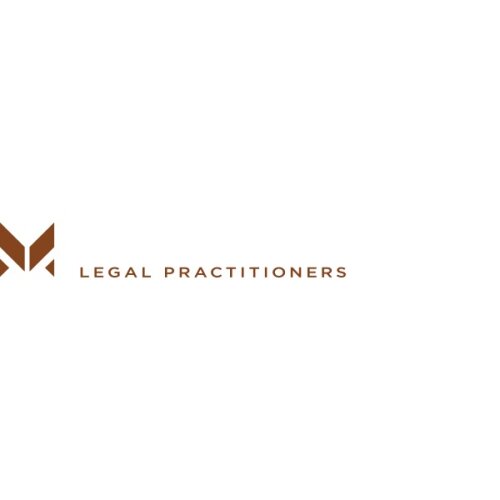Best Renewable & Alternative Energy Lawyers in Zambia
Share your needs with us, get contacted by law firms.
Free. Takes 2 min.
Or refine your search by selecting a city:
List of the best lawyers in Zambia
About Renewable & Alternative Energy Law in Zambia
Renewable and alternative energy in Zambia refers to the use, development, and management of sustainable energy sources such as solar, hydro, wind, and biomass. Zambia has abundant renewable energy resources, with hydropower being the primary source of electricity generation. Over recent years, there has been a significant push toward diversifying the energy mix to include more solar and other alternative sources. This transition is governed by legal frameworks, regulations, and policies intended to ensure sustainable environmental management, energy security, and increased access to electricity across the country. The legal landscape is shaped by various statutes, government agencies, and specialized regulations that impact both individual and corporate energy projects.
Why You May Need a Lawyer
Engaging in renewable and alternative energy projects often involves navigating complex regulations, compliance requirements, contracts, and licensing procedures. Common situations where you may require legal assistance in this field include:
- Applying for permits or licenses to develop solar, wind, or hydro energy projects
- Negotiating power purchase agreements with the government or private entities
- Ensuring compliance with environmental protection laws and impact assessments
- Securing land rights or resolving land ownership disputes related to energy projects
- Protecting intellectual property for new technology or innovations
- Structuring joint ventures and partnerships with local or foreign investors
- Handling disputes and litigation arising from energy contracts or regulatory compliance
- Navigating tax incentives, tariffs, and financial arrangements for renewable energy projects
A lawyer with expertise in renewable and alternative energy can help you understand your rights and obligations, protect your interests, and ensure you achieve your project goals without running afoul of the law.
Local Laws Overview
The regulatory environment for renewable and alternative energy in Zambia is shaped by several key legal instruments and bodies:
- Electricity Act: Regulates the generation, transmission, distribution, and supply of electricity, including from renewable sources.
- Energy Regulation Act: Establishes the Energy Regulation Board (ERB), which oversees the licensing and regulation of all energy providers, including renewable energy projects.
- National Energy Policy: Outlines the government's strategic direction for energy development, emphasizing the need to diversify energy sources and promote investments in renewable energy.
- Environmental Management Act: Requires that all energy projects undergo environmental impact assessments to mitigate negative environmental effects and ensure sustainability.
- Land Laws: Address the processes for acquiring and transferring land, which can be a significant consideration for the siting of renewable energy projects.
- Investment Incentives: The Zambia Development Agency Act provides for incentives and guarantees to investors in renewable energy.
Understanding the interaction between these laws and how they apply to your specific project is crucial, and professional legal advice is often necessary to ensure full compliance.
Frequently Asked Questions
What types of renewable energy projects are most common in Zambia?
The most common renewable energy projects in Zambia are hydropower and solar power installations. There is increasing interest in wind and biomass ventures as well.
Do I need a licence to develop a solar or wind power project?
Yes. You must obtain a license from the Energy Regulation Board and comply with specific regulatory requirements before developing, generating, transmitting, or distributing electricity from any renewable source.
What incentives are available for renewable energy investors?
Incentives may include tax holidays, customs duty exemptions on specific equipment, and investment guarantees. Details are outlined in the Zambia Development Agency Act and subject to fulfillment of prescribed conditions.
How does the government support renewable energy development?
Through policy frameworks, investment incentives, and partnerships with private investors, the government encourages the growth of renewable energy. Various reforms aim to promote grid and off-grid access.
What is a Power Purchase Agreement (PPA)?
A Power Purchase Agreement is a contract between an energy producer and a purchaser, often a government utility, specifying the terms for selling electricity generated from a project. Legal input is essential for negotiations and drafting.
Is an Environmental Impact Assessment required?
Yes. Most renewable and alternative energy projects require a thorough environmental impact assessment to comply with the Environmental Management Act.
Can foreign companies invest in renewable energy in Zambia?
Yes. Foreign entities can participate, often in partnership with local firms. These investments are facilitated by the Zambia Development Agency and must comply with relevant regulations and licensing requirements.
What happens if I do not comply with energy regulations?
Failure to comply can result in fines, revocation of licenses, project shutdowns, and possible legal action. It is essential to ensure full compliance from the outset.
How are land issues handled for energy projects?
Land acquisition is governed by national land laws and may involve customary or state land. Legal advice is important to address title, acquisition procedures, permits, and any associated disputes.
Where can I find legal support for my renewable energy project?
Seek assistance from law firms with expertise in energy and environmental law, or consult the Energy Regulation Board for guidance on compliance requirements.
Additional Resources
Several organizations and bodies offer valuable information and support for those interested in renewable and alternative energy in Zambia, including:
- Energy Regulation Board (ERB) - Licensing and regulation information for energy projects
- Zambia Development Agency (ZDA) - Investment incentives and business support for renewable energy ventures
- Ministry of Energy - Policy direction, programs, and national energy planning
- Zambia Environmental Management Agency (ZEMA) - Environmental compliance requirements and impact assessment guidelines
- Rural Electrification Authority - Programs for expanding rural access to clean energy
- Law Association of Zambia - Directory of qualified lawyers including those specializing in energy law
Next Steps
If you are seeking legal assistance in renewable and alternative energy in Zambia, begin by identifying your specific needs and the nature of your project. Gather all relevant documents and information about your intended investment or development. Reach out to a reputable law firm or individual lawyer with experience in energy, environmental, and investment law. Be prepared to discuss your objectives, challenges, and any deadlines you may be facing. For regulatory matters, contact the Energy Regulation Board or the relevant authority for initial guidance. Staying informed and seeking professional legal advice early in the process can help ensure compliance, minimize risks, and maximize the success of your renewable energy endeavor.
Lawzana helps you find the best lawyers and law firms in Zambia through a curated and pre-screened list of qualified legal professionals. Our platform offers rankings and detailed profiles of attorneys and law firms, allowing you to compare based on practice areas, including Renewable & Alternative Energy, experience, and client feedback.
Each profile includes a description of the firm's areas of practice, client reviews, team members and partners, year of establishment, spoken languages, office locations, contact information, social media presence, and any published articles or resources. Most firms on our platform speak English and are experienced in both local and international legal matters.
Get a quote from top-rated law firms in Zambia — quickly, securely, and without unnecessary hassle.
Disclaimer:
The information provided on this page is for general informational purposes only and does not constitute legal advice. While we strive to ensure the accuracy and relevance of the content, legal information may change over time, and interpretations of the law can vary. You should always consult with a qualified legal professional for advice specific to your situation.
We disclaim all liability for actions taken or not taken based on the content of this page. If you believe any information is incorrect or outdated, please contact us, and we will review and update it where appropriate.
Browse renewable & alternative energy law firms by city in Zambia
Refine your search by selecting a city.
















